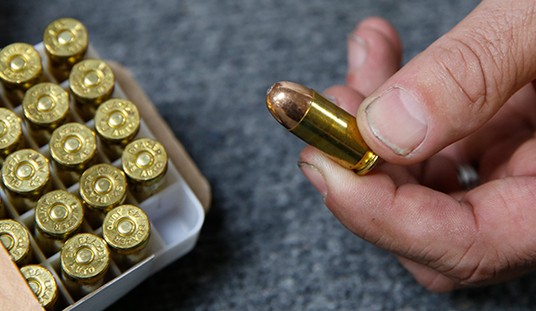I did not write this article to glorify my uncle. He would not have wanted that. I wrote it to tell his story and to help keep alive the memory of the men and women who served in the Korean war.
Stanley Eugene “Stan” Tabor, 1st Lieutenant, Company E, 2nd Battalion, 19th Infantry, 24th Division, was born in Mexia, Texas in 1923. Mexia was then and is now a small town, and with a new son to feed, Stan’s family moved to a better job market in the Dallas suburb of Oak Cliff. Growing up, Stan did the usual things that boys do. He played baseball, joined the Boy Scouts, learned from his dad how to fish, and, according to family legend, occasionally exasperated my grandmother.
He graduated from Adamson High School, and was awarded a scholarship to A&M. That summer of 1941 he hitchhiked to College Station to start school. After Pearl Harbor, he suspended his studies to join the Army Air Corps. Unable to enter pilot training because of his eyesight, he transferred to the infantry and attended OCS. After graduation, like so many butterbars before and after, he was assigned as a platoon leader and shipped off to the Pacific theater. Assigned to the 1st Battalion of the 19th Infantry, 24th Division, Stan fought in New Guinea and the Philippines, and later served in the occupation forces in Japan.
In 1947 Stan returned to A&M, and graduated in May 1950. After graduating, he married his longtime sweetheart, Kitty Chalk, in a ceremony at the Presidio. Five days later, he returned to active duty in Korea with the 19th, this time assigned to Company E of the 2nd Battalion. In late July, he was fighting in the defense of Taejon. This battle, fought by units of the 19th, 21st, and 34th infantry regiments during the third week of July 1950, was a calculated delaying action ordered by the Eighth Army’s General Walton Walker. Gen. Walker needed time to establish a perimeter at Pusan, and it fell to the 24th, under Major General William F. Dean, to slow the North Korean advance and buy Gen. Walker the time he needed. General Walker’s orders were to hold Taejon until 20 July.
Taejon is located near the center of South Korea, about one hundred miles south of Seoul, and is bordered on the north and west by the Geum (Kum) river. In July 1950, the North Korean 3rd and 4th divisions and 105th Armored Division advanced on Taejon from the northern, western and southwestern approaches to the city. On 14 July, elements of the 34th Infantry on the outskirts of Taejon spotted North Korean armored units approaching the Geum river from the northwest. The NKA tanks fired on the American forces, and the battle was joined. Undermanned and outgunned, Dean’s men fought a desperate seven-day battle in and around Taejon.
On 21 July, after a week of bitter house-to-house fighting, the remaining elements of the 24th Division moved south and east out of Taejon. Gen. Dean remained with the last of his men to leave the city and is credited with having assisted in destroying an NKA T34 tank with a 3.5” bazooka.
In the confusion of the fighting retreat, Gen. Dean and many others became separated from what was left of the Division. Stan was among them. On the evening of the 21st, Gen. Dean fell down a steep hill into a dry creek bed and was knocked unconscious. The men he was with were unable to find him.
Here is Gen. Dean’s account:
“I was still lying there in the morning when I heard a noise, something scrambling down the same path I had used. I got around behind a rock and pulled my pistol, just in case it might be a North Korean. But the man who lurched into view was a young American. He had not seen me yet — he was too busy making his way
down that brutal path when I called to him. ‘Who are you?’ I said. ‘What outfit are you from?’ He jumped when he heard me but sighed with relief when he saw that I was an American. He said, ‘I’m Lieutenant Stanley Tabor from the Nineteenth Infantry. Who are you?’ I tried to get up from behind my rock but had trouble. I said, ‘I’m the S.O.B. who’s the cause of all this trouble.’
“Tabor said he had been with Easy Company of the 2nd Battalion, which I had thrown into the river perimeter to bolster up the 34th’s strength. In the retreat he’d been cut off and had started walking south by himself. We started walking again that morning, Tabor carrying his carbine and I with my pistol banging against my leg. I had to keep stopping to rest, and after each rest Tabor would pull me to my feet, and we’d make a few more yards. Several times I said ‘You go on ahead, one person can get through a lot quicker,’ but he always would say, ‘No, two have a better chance,’ and he refused to leave me.
“We kept heading south through the brush, toward Kumsan, waiting for an opportunity to turn toward the east in the direction of division headquarters.
That afternoon we stumbled into a family of refugees from Taejon, and they gave us some of their rice and hid us under some canvas until dark. Both of us got some sleep. When we awakened that evening we started south again. This was on the evening of 22 July, but the next days are more or less a blank. Tabor must
have kept us both going by will power, because I don’t remember having any.
“At last we reached a small town, and within a few minutes the whole population was around us. We asked for food, and someone brought us water with some
kind of uncooked grain ground up in it. They also gave each of us two raw eggs.
The people seemed friendly, and one of them said ‘Come with me.’ He indicated that we should come to his house to get some rest, and that he would take us to Taegu in the morning. He led us to a house at the far edge of the village, where we took off our boots and went to sleep on the floor.
“Several hours later, we heard a rifle shot just outside the house. A voice called, ‘Come out, Americans! Come out! We will not kill you. We are members of the People’s Army. Come out, Americans!’ Tabor said, ‘This is it,’ and reached for his carbine. I said to Tabor, ‘Come on, get your boots on, in a hurry,’ and we both did. We jumped into some high weeds right beside the house, and we started crawling up a little hill in the dark. I said, ‘I’m not going to surrender, Tabor. There won’t be any surrender for me.’ ‘That’s the way I feel too,’ he said.
“There were more shots. They heard us in the weeds and fired in that direction. Crossing back-lots and skirting around houses, we finally came out in a rice paddy. We dived into the water, crawling and using our elbows to inch us forward. We crossed three paddies and Tabor was still with me. Then I went over another dike and crawled some more, but when I looked back, Tabor was not behind me and I was not to see another American for three long years."
Stan and Gen. Dean were both captured by separate NKA units. Injured in the melee in the village, Stan died of his wounds in early October. Gen. Dean survived the war, and in 1954 he posthumously awarded Stan the Silver Star. He presented it to my Aunt Kitty in the same chapel in the Presidio where she and Stan had married four years earlier.








Join the conversation as a VIP Member